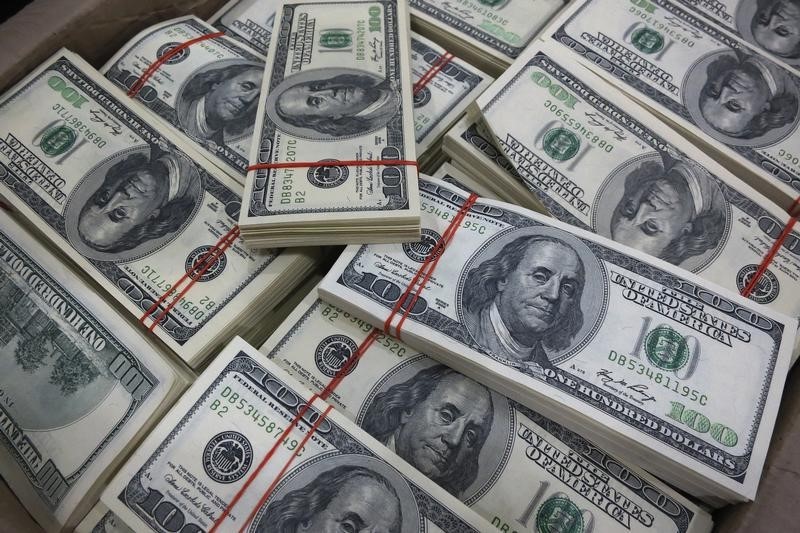* December U.S. imports up 3.2% to seven-month high
* Yuan climbs, China to slash tariffs on some U.S. imports
* Philippine peso, Indian rupee flat ahead of rate decisions
(Adds text, updates prices)
By Rashmi Ashok
Feb 6 (Reuters) - Currencies of export-reliant Taiwan and
South Korea firmed on Thursday after data showed sharp growth in
U.S. imports, while the yuan climbed on China's plans to slash
tariffs on some U.S. imports.
U.S. goods imports rose 3.2% to a seven-month high after
three straight months of declines, partly helping a rally on
Wall Street overnight. The won KRW=KFTC opened firmer and jumped as much as 1.1%
- its biggest intraday percentage gain in more than four weeks.
The Taiwan dollar TWD=TP added nearly 0.6% to hit a
two-week high.
The yuan CNY=CFXS climbed 0.2% after China said it would
halve tariffs on some goods imported from the United States
starting Feb. 14. The currency rose to 6.959 against the U.S. dollar, its
strongest since Jan. 23.
Other Asian currencies also traded slightly higher on the
news, although rising worries over the coronavirus outbreak that
had claimed 563 lives in China by Wednesday limited the gains.
Meanwhile, the Indian rupee INR=IN and the Philippine peso
PHP= were little changed ahead of central bank policy
decisions.
A Reuters poll showed the Bangko Sentral ng Pilipinas is
expected to cut interest rates, in a bid to buttress the economy
against the negative impact of the virus outbreak, given that
January inflation stayed within the central bank's target range.
On the other hand, economists largely expect the Reserve
Bank of India (RBI) to keep rates on hold, as high inflation
throws a spanner in its accommodative plans. The RBI lowered policy rates by a total of 135 basis points
in 2019, leading to a spike in inflation even as growth
stagnated.
"Unfortunately for the RBI, no matter what its decision is,
it is likely to be received negatively by both the currency
market and the onshore equities market. Such are the joys of
stagflation," Jeffrey Halley, senior market analyst for Asia
Pacific at OANDA, said in a note.
Among losers, the Thai baht THB=TH slid 0.4%, a day after
the Bank of Thailand cut interest rates in a surprise move as it
strives to cushion the tourism-reliant economy in the wake of a
hit from the coronavirus epidemic. The Singapore dollar SGD= slipped for a second straight
session after the Monetary Authority of Singapore's comments on
Wednesday were seen by markets as an indicator of policy easing
in its April meeting.
The following table shows rates for Asian currencies against
the dollar at 0520 GMT.
CURRENCIES VS U.S. DOLLAR
Currency Latest bid Previous day Pct Move
Japan yen 109.950 109.8 -0.14
Sing dlr 1.384 1.3812 -0.22
Taiwan dlr 30.005 30.152 +0.49
Korean won 1178.400 1191.5 +1.11
Baht 31.090 30.96 -0.42
Peso 50.720 50.73 +0.02
Rupiah 13610.000 13670 +0.44
Rupee 71.220 71.19 -0.05
Ringgit 4.117 4.1195 +0.06
Yuan 6.962 6.9753 +0.19
Change so far in 2020
Currency Latest bid End 2019 Pct Move
Japan yen 109.950 108.61 -1.22
Sing dlr 1.384 1.3444 -2.88
Taiwan dlr 30.005 30.106 +0.34
Korean won 1178.400 1156.40 -1.87
Baht 31.090 29.91 -3.80
Peso 50.720 50.65 -0.14
Rupiah 13610.000 13880 +1.98
Rupee 71.220 71.38 +0.22
Ringgit 4.117 4.0890 -0.68
Yuan 6.962 6.9632 +0.02
